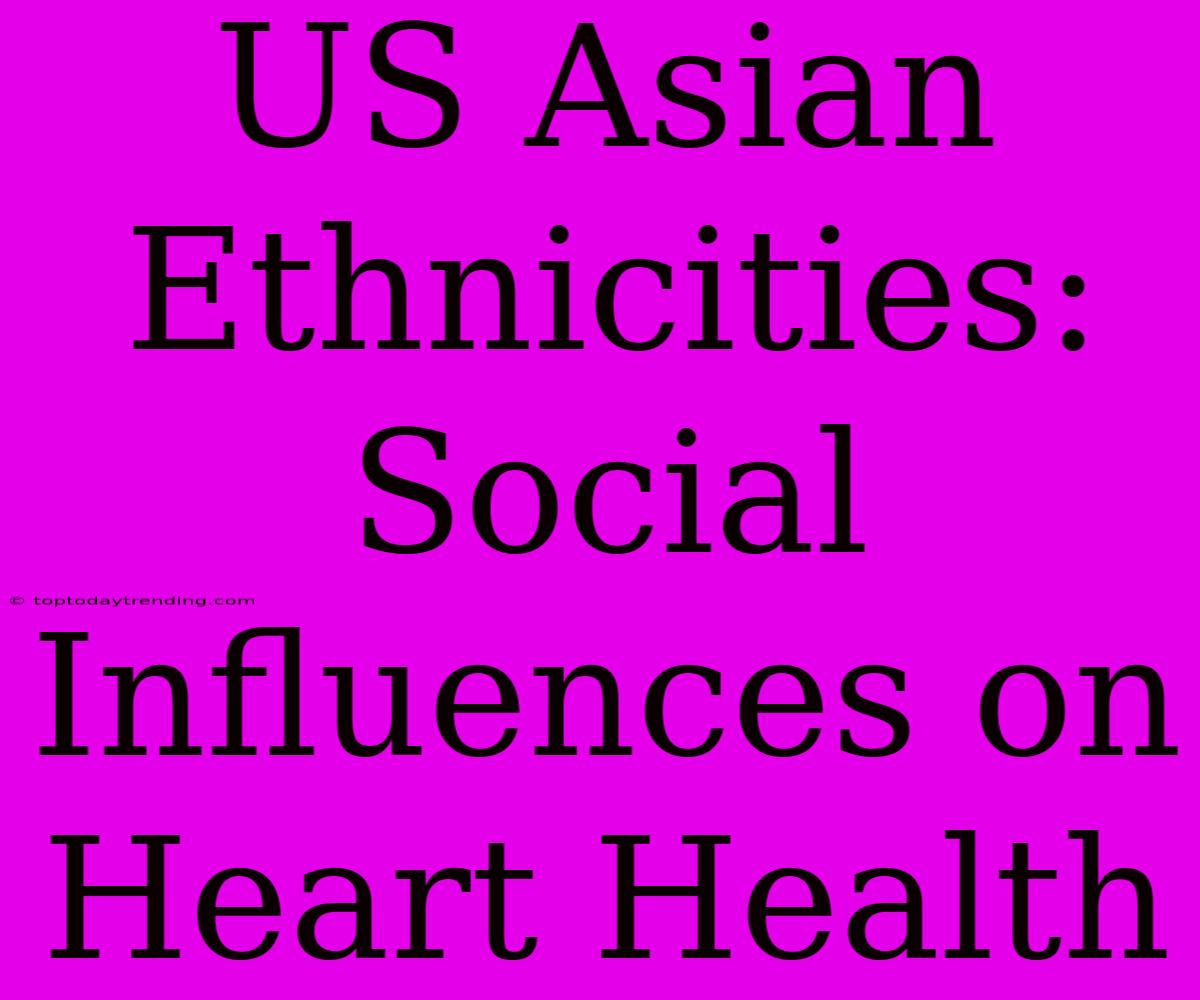US Asian Ethnicities: Social Influences on Heart Health
Introduction:
Heart disease is a leading cause of death in the United States, and it disproportionately affects certain ethnic groups. While genetics play a role, social determinants of health have a significant impact on heart health, particularly within the diverse Asian American population. This article explores the complex interplay between social factors and heart health among US Asian ethnicities, highlighting key areas for intervention and promoting greater equity in healthcare outcomes.
Understanding Diversity:
The term "Asian American" encompasses a vast spectrum of ethnicities with unique cultural practices, socioeconomic experiences, and health disparities. For instance, South Asians, like Indians and Pakistanis, experience higher rates of type 2 diabetes and cardiovascular disease compared to other Asian subgroups. Meanwhile, Southeast Asian groups, such as Vietnamese and Laotian populations, face challenges related to access to healthcare and language barriers. Recognizing this diversity is crucial for understanding the nuanced social influences on heart health within the Asian American community.
Social Determinants of Health:
1. Socioeconomic Status:
- Income Inequality: Low socioeconomic status is linked to poor heart health. Asian Americans are more likely to live in poverty and have limited access to quality healthcare, nutritious food, and safe neighborhoods, all factors that contribute to cardiovascular risk.
- Education: Lower levels of education are associated with lower awareness of heart disease risk factors and reduced access to preventive care.
2. Cultural Practices:
- Dietary Habits: Some Asian cultures embrace diets high in sodium, saturated fat, and processed foods, increasing the risk of hypertension and heart disease.
- Stress and Social Support: Traditional cultural values can sometimes lead to stress-induced emotional suppression, impacting mental well-being and contributing to heart health issues.
3. Access to Healthcare:
- Language Barriers: Language disparities can impede access to healthcare services, leading to delayed diagnoses and treatment for heart disease.
- Cultural Sensitivity: Lack of culturally sensitive healthcare providers can create mistrust and hinder open communication about health concerns.
Addressing the Challenges:
1. Promoting Cultural Sensitivity:
- Language Accessibility: Implementing bilingual healthcare services and materials is essential for effective communication and patient understanding.
- Cultural Competency: Training healthcare professionals on culturally appropriate practices, communication styles, and the nuances of different Asian ethnicities is crucial for building trust and fostering better health outcomes.
2. Targeted Interventions:
- Community-Based Programs: Developing culturally tailored health education programs can empower Asian Americans with knowledge about heart health risk factors, healthy lifestyle choices, and early detection methods.
- Economic Empowerment: Addressing income inequality and providing access to affordable healthcare and nutritious food are essential for improving health outcomes within the community.
3. Research and Advocacy:
- Data Collection: Collecting and analyzing disaggregated data on heart health disparities across different Asian ethnicities is crucial for understanding the unique needs and developing effective interventions.
- Policy Change: Advocating for policies that address the social determinants of health and promote equity in healthcare access is critical for improving heart health within the Asian American community.
Conclusion:
Social influences play a significant role in shaping heart health among US Asian ethnicities. Understanding the interplay between socioeconomic factors, cultural practices, and healthcare access is crucial for developing effective interventions and achieving greater equity in health outcomes. By promoting cultural sensitivity, implementing targeted programs, and advocating for policy changes, we can empower Asian Americans to live healthier lives and reduce the disproportionate burden of heart disease within their communities.

